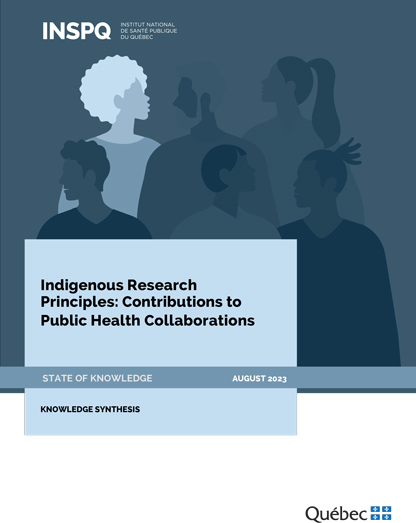Indigenous Research Principles: Contributions to Public Health Collaborations
Indigenous organizations and communities have developed research principles to raise researchers’ awareness of ethical issues in research involving Indigenous populations, with the aim of decolonizing practices and knowledge.
These principles and their usefulness in supporting public health actions appear to be of interest to the Québec public health network. This synthesis aims to identify, through a systematized review of the grey literature, the research principles put forth by Indigenous organizations in Canada.
Nineteen documents were analysed. The identified principles have been grouped into eight categories for ease of comprehension:
- Self-determination
- Relationship building
- Respect for local needs and priorities
- Positive impacts and capacity building
- Respect for culture and values
- Recognition of Indigenous knowledge
- Respect for consent and confidentiality
- Data governance
These categories are not presented in order of priority. They are also porous: for instance, self-determination cuts across all eight categories. There is consensus on these principles among the documents analyzed, and the principles are consistent with the findings of other similar reviews conducted in Canada.
Reviewing Indigenous research principles can deepen knowledge of Indigenous peoples’ cultural realities, strengthen dialogue, and support discussion of parameters for collaboration that respect Indigenous communities’ autonomy, to ultimately improve health and well-being.
None of the principles identified were developed specifically for public health. However, they echo key public health values, including equity and collaboration, and can contribute to ethical analyses of public health issues.


